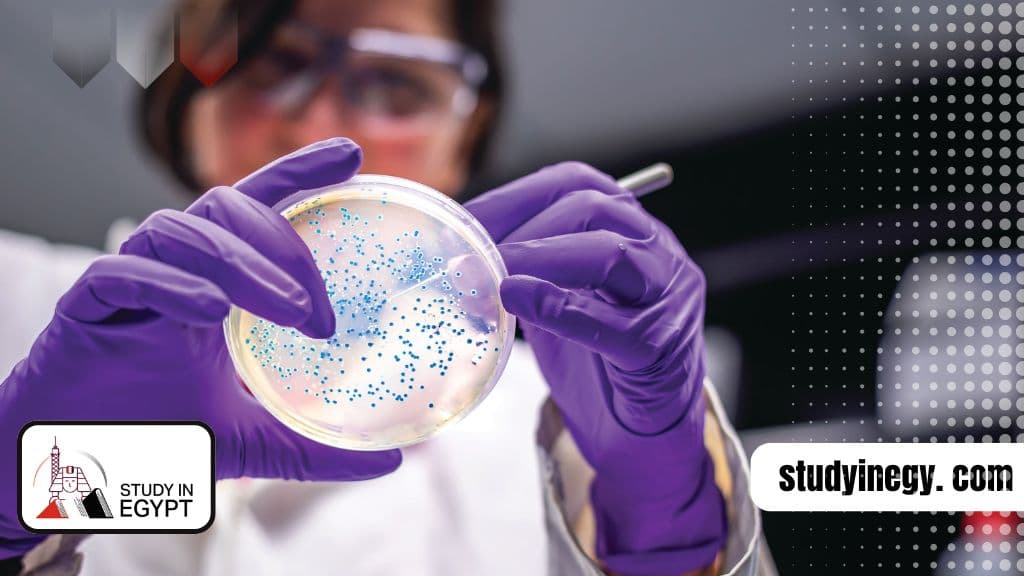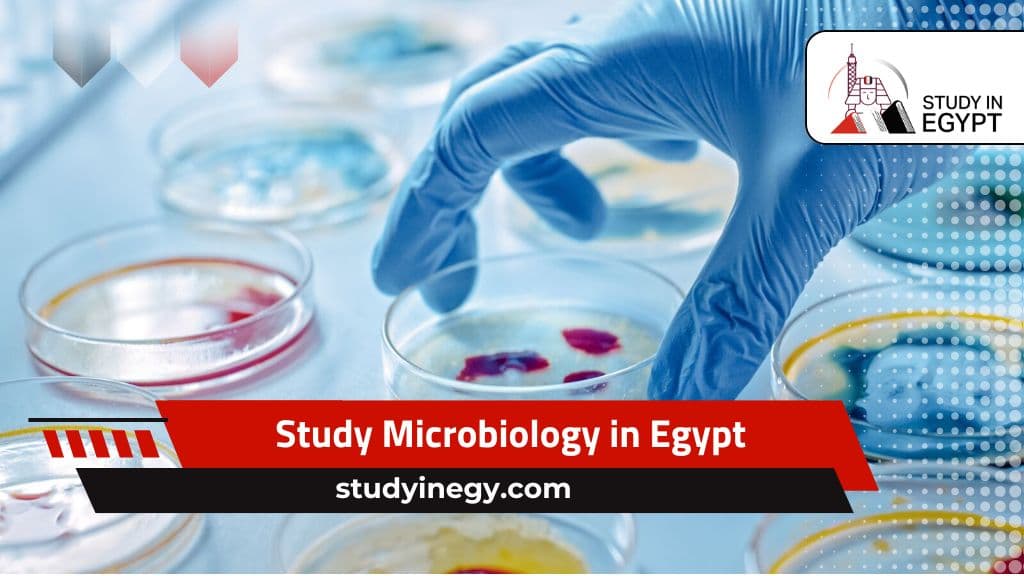Why Study Microbiology in Egypt?!
Microbiology helps geneticists understand and study nucleic acids (DNA and RNA).
It also contributes to disease control by identifying pathogens, developing vaccines, and producing antibiotics. Microbiologists also produce chemicals essential for agriculture and conduct medical tests on water and food to ensure they are free of germs.
Microbiology is of great importance in the medical field. It enables the diagnosis, treatment, and prevention of disease outbreaks in communities and hospitals. It helps determine how certain microorganisms cause diseases and discover effective treatments for them. Industries can also utilize certain microbes for their purposes.
This scientific specialization also aids in identifying all microorganisms by understanding how they live in their environments, their methods of reproduction, and how they affect other living organisms, including humans, animals, plants, and others.
This science helps in studying all types of bacterial germs, their characteristics, and the diseases they cause in the medical, agricultural, industrial, and marine fields, as well as in studying parasitic organisms that cause diseases, such as protozoa, worms, and arthropods.
So, it is a great and important science, and the global labor market requires certifications from globally well-accredited universities from the specialists in it.
Therefore, a huge number of international students want to apply to the Egyptian Universities!
How Is Studying at Egyptian Universities?!
The Egyptian universities offer Microbiology programs by following the most advanced educational strategy, combining academic and practical curricula and providing environments that facilitate research and learning with complete ease.
This is the global educational method offered in the largest and most famous universities in the world.
The Egyptian universities include top-notch training centers and research centers, the latest technological laboratories, high-tech well-prepared libraries, and top-advanced classrooms.
So, the students will study in these advanced environments and amid realistic professional worlds under the supervision of expert scientists.
Hence, the student graduates while knowing each detail of the Microbiology, whether academically or practically.

Also, the whole globe knows well how high the educational quality in Egyptian universities is.
Hence, the whole globe recognizes and values the certifications provided by the Egyptian universities in Microbiology, at the same value as the top European and American universities.
The Cost of Studying Microbiology in Egypt for the Non-Egyptians
Despite the high quality of studying microbiology in Egypt, the cost is affordable for non-Egyptians compared to the top universities in Europe and America that offer the same quality of education and value of certificates.
The international students pay annually only $5000 USD for the pre-graduate programs and $5500 USD for the postgraduate programs.
The Best Universities to Study Microbiology in Egypt
- Cairo University.
- Ain Shams University.
- Alexandria University.
- Mansoura University.
- Zagazig University.
- The American University in Cairo (AUC).
- German University in Cairo (GUC).
- October University for Modern Sciences and Arts (MSA).







